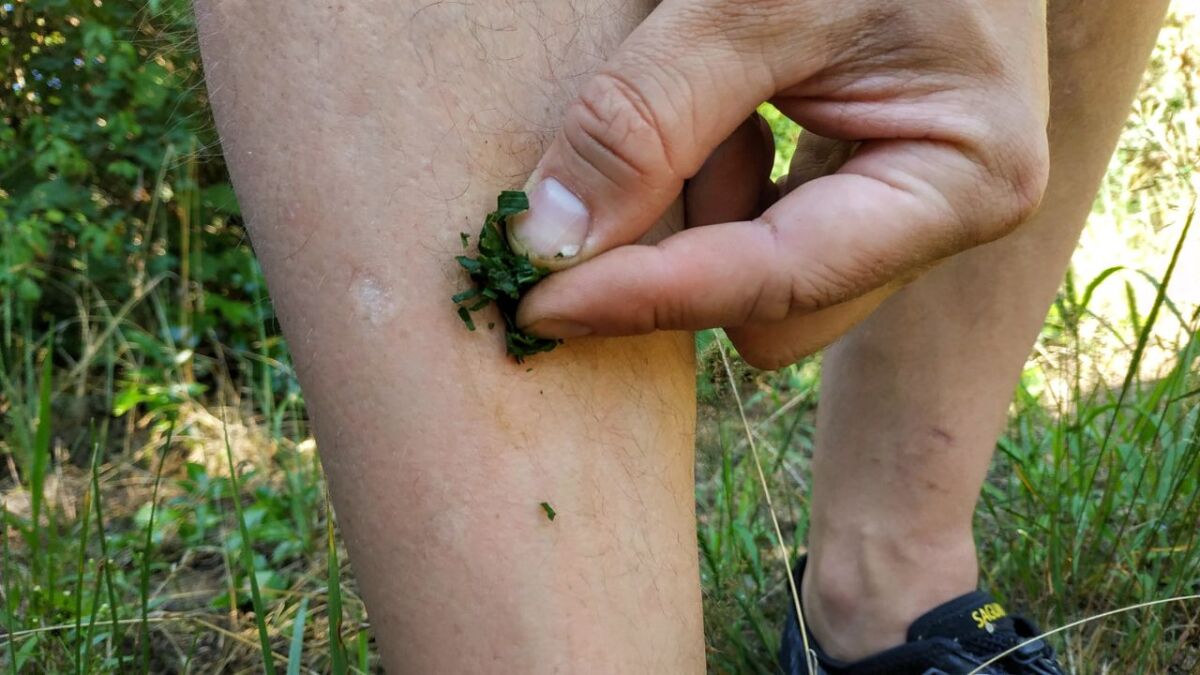
Natural remedies
Noun
Meaning
Natural remedies are substances or techniques derived from nature that are used to treat or alleviate various ailments or health issues. In the context of survival, bushcraft, wilderness, camping, and hiking, natural remedies refer to the use of plants, herbs, and other natural resources to address common health concerns when access to modern medical facilities or supplies is limited or unavailable.
These remedies have significant relevance in the outdoor community as they provide alternative options for managing minor injuries, illnesses, or discomforts while spending time in remote or challenging environments. Understanding and utilizing natural remedies can enhance self-reliance and resilience in outdoor settings, promoting a deeper connection with nature and a greater sense of empowerment.

Examples
„I love exploring the wilderness and practicing bushcraft. One of the things I always carry with me is a collection of natural remedies. They come in handy for treating minor injuries and ailments while out in the wild.“
„During a recent camping trip, my friend complained of a headache. I suggested using a natural remedy like peppermint oil to alleviate the pain.“
„When I sprained my ankle while hiking, I immediately reached for my natural remedies. Arnica gel helped reduce the swelling and provided relief.“
„A fellow survival enthusiast shared with me their favorite natural remedy for insect bites: a mixture of lavender essential oil and witch hazel. It worked wonders in soothing the itchiness.“
„While camping in the mountains, I encountered a nasty case of poison ivy. Luckily, I had a natural remedy in my backpack - a paste made from crushed jewelweed leaves. It helped calm the irritation and speed up the healing process.“
Origin
The term "natural remedies" originated from the combination of the words "natural" and "remedies". The word "natural" comes from the Latin word "naturālis", which means "of nature" or "according to nature". It refers to anything that is derived from or related to the natural world.
The word "remedies" comes from the Latin word "remedium", which means "cure" or "treatment". It refers to any substance or method used to alleviate or cure a health condition or ailment.
The concept of using natural remedies to treat various health issues has been practiced for centuries across different cultures and civilizations. Ancient civilizations, such as the Egyptians, Greeks, and Chinese, relied heavily on natural remedies derived from plants, herbs, and other natural substances.
Over time, the knowledge and use of natural remedies have evolved and expanded. With advancements in scientific research and understanding, the effectiveness and safety of natural remedies have been studied and validated.
Today, natural remedies encompass a wide range of practices and substances, including herbal medicine, aromatherapy, homeopathy, naturopathy, and traditional medicine. They are often used as alternative or complementary approaches to conventional medicine.
As more people seek natural and holistic approaches to health and wellness, the popularity and demand for natural remedies continue to grow. They are seen as a way to promote overall well-being and address health concerns in a more gentle and sustainable manner.
Synonyms
Herbal remedies, Alternative medicine, Traditional medicine, Home remedies, Holistic healing, Natural treatments, Plant-based remedies, Folk remedies
Antonyms
Synthetic treatments, Artificial cures, Chemical remedies, Manufactured solutions, Processed therapies, Pharmaceutical interventions, Medical interventions, Conventional treatments
Relatives
Herbal medicine, Alternative medicine, Holistic healing, Traditional remedies, Home remedies, Plant-based medicine, Natural healing, Folk medicine
Historical and cultural importance
Natural remedies have a long and rich history in various cultures around the world. For centuries, people have relied on the healing power of nature to treat ailments and maintain their well-being. In ancient civilizations such as Egypt, China, and India, herbal medicine was a fundamental part of their healthcare systems.
In Egypt, the use of natural remedies can be traced back to the time of the pharaohs. The Ebers Papyrus, an ancient Egyptian medical text, contains detailed descriptions of various plants and their medicinal properties. These remedies were used to treat a wide range of conditions, from digestive disorders to skin ailments.
In traditional Chinese medicine, the concept of using natural remedies is deeply ingrained. Practitioners believe in the balance of yin and yang energies in the body, and herbal remedies are used to restore this balance. Chinese herbal medicine utilizes a vast array of plants, minerals, and animal products to address specific health issues.
Similarly, Ayurveda, the traditional medicine system of India, places great emphasis on natural remedies. Ayurvedic practitioners use herbs, spices, and other natural substances to promote overall health and treat specific diseases. The ancient Ayurvedic texts, such as the Charaka Samhita and the Sushruta Samhita, provide detailed instructions on the preparation and use of these remedies.
Today, natural remedies continue to be popular as people seek alternative and holistic approaches to healthcare. The knowledge and wisdom passed down through generations have contributed to the development of modern herbal medicine and natural healing practices.
More information about the term Natural remedies
Natural Remedies: Harnessing the Power of Nature for Healing
When it comes to taking care of our health and well-being, many of us are turning to natural remedies as an alternative to conventional medicine. Natural remedies, also known as herbal remedies or traditional medicine, have been used for centuries by different cultures around the world. These remedies harness the power of nature to promote healing and support our body's natural ability to restore balance.
The Benefits of Natural Remedies
One of the main advantages of natural remedies is their minimal side effects. Unlike pharmaceutical drugs, which often come with a long list of potential adverse reactions, natural remedies are generally considered safe when used as directed. They are derived from plants, herbs, and other natural sources, making them a more holistic approach to healing.
Another benefit of natural remedies is their affordability. Many herbal remedies can be grown in your own backyard or purchased at a fraction of the cost of prescription medications. This accessibility makes natural remedies a viable option for those who may not have access to or cannot afford conventional medical treatments.
Types of Natural Remedies
There are various types of natural remedies that can be used to address different health concerns. Here are a few examples:
Herbal Remedies
Herbal remedies involve using different parts of plants, such as leaves, flowers, roots, or bark, to create teas, tinctures, or topical applications. Examples include chamomile for relaxation, ginger for digestion, and lavender for stress relief.
Essential Oils
Essential oils are highly concentrated plant extracts that are used for their therapeutic properties. They can be inhaled, applied topically, or used in diffusers. Lavender oil, for instance, is known for its calming effects, while tea tree oil has antimicrobial properties.
Homeopathic Remedies
Homeopathy is a system of medicine that uses highly diluted substances to stimulate the body's natural healing response. These remedies are based on the principle of "like cures like" and are often used for chronic conditions or emotional imbalances.
Traditional Chinese Medicine
Traditional Chinese Medicine (TCM) incorporates various natural remedies, including acupuncture, herbal medicine, and dietary therapy. TCM focuses on restoring the balance of energy, or Qi, within the body to promote overall health and well-being.
Using Natural Remedies Safely
While natural remedies can be effective, it's important to use them safely and responsibly. Here are a few guidelines to keep in mind:
- Consult with a healthcare professional before starting any new natural remedy, especially if you have underlying health conditions or are taking medications.
- Follow the recommended dosage and usage instructions provided with the remedy.
- Be aware of any potential interactions between natural remedies and other medications you may be taking.
- If you experience any adverse reactions or worsening of symptoms, discontinue use and seek medical advice.
Conclusion
Natural remedies offer a holistic approach to healing, harnessing the power of nature to support our body's innate ability to restore balance and promote well-being. From herbal remedies to essential oils and traditional medicine systems like TCM, there are various natural remedies available to address different health concerns. By using natural remedies safely and responsibly, we can tap into the healing potential of nature and take charge of our own health.
Back to overview

